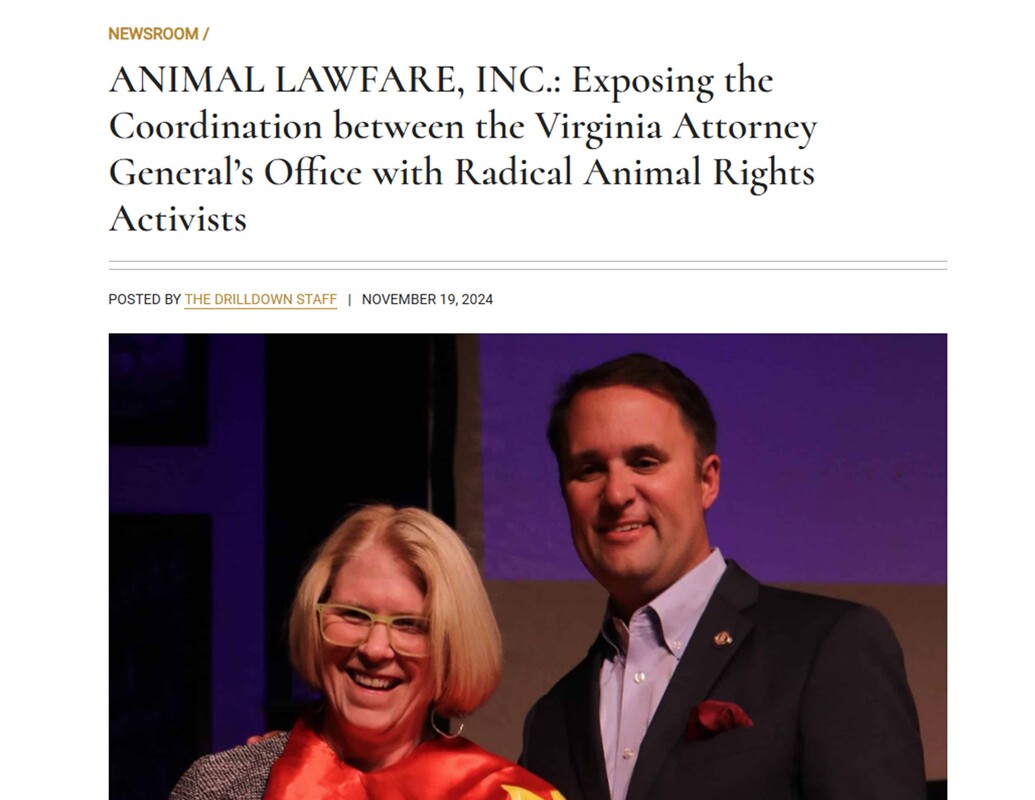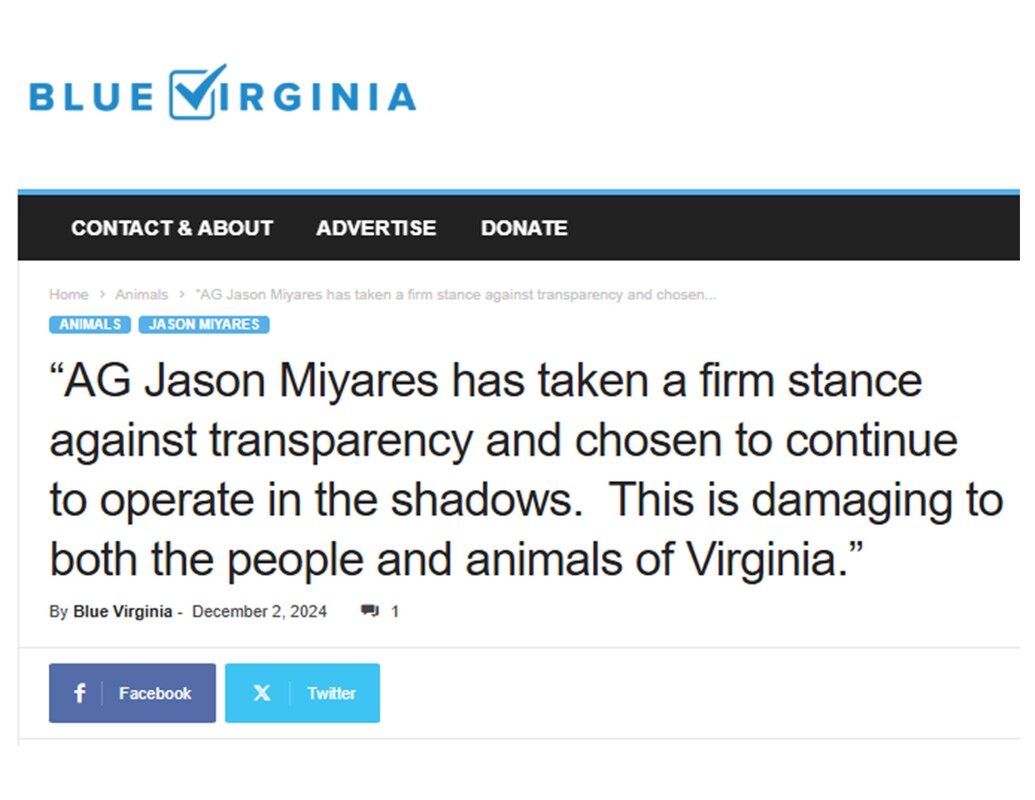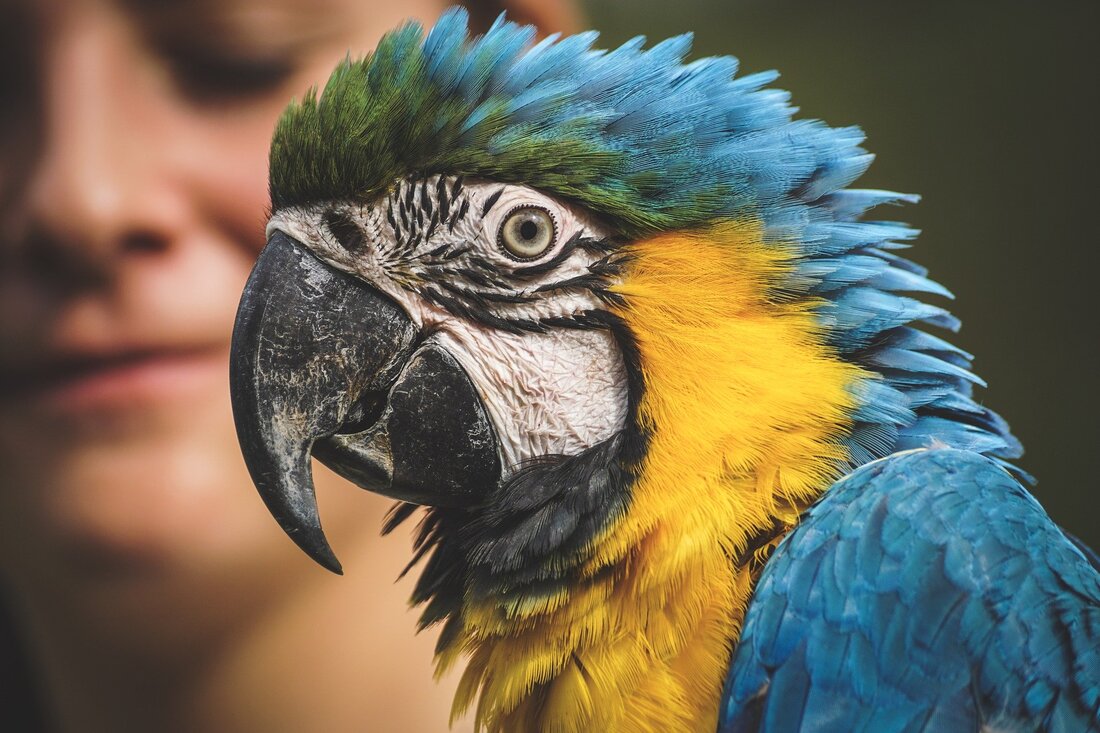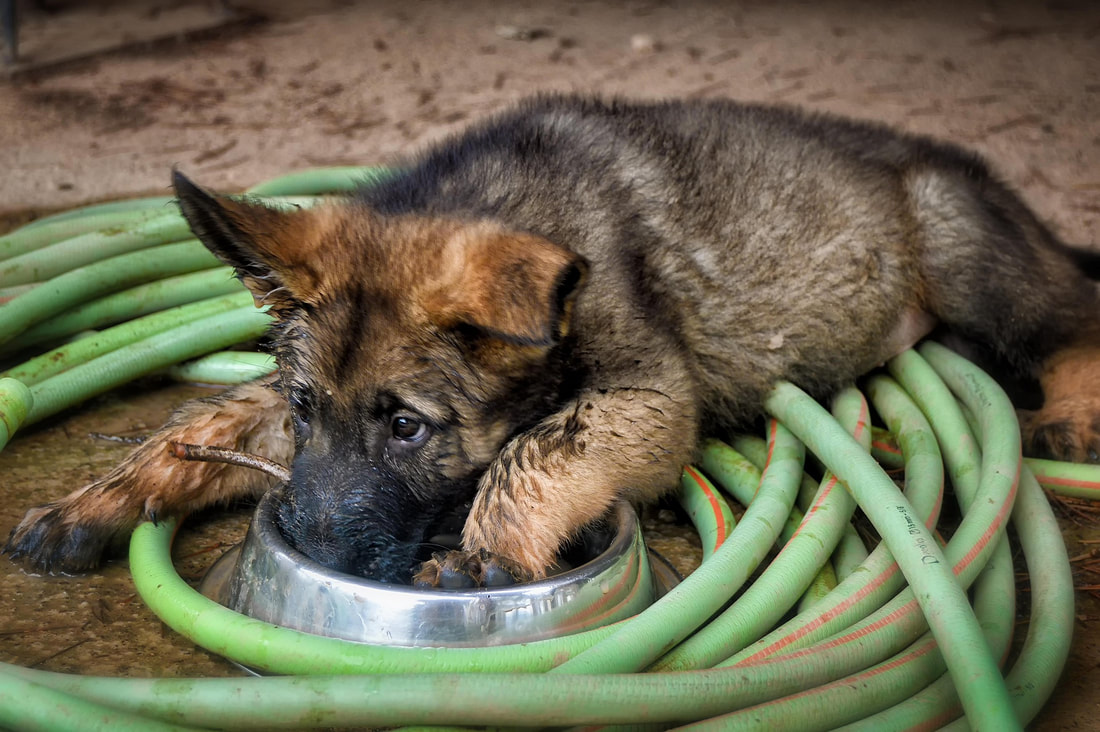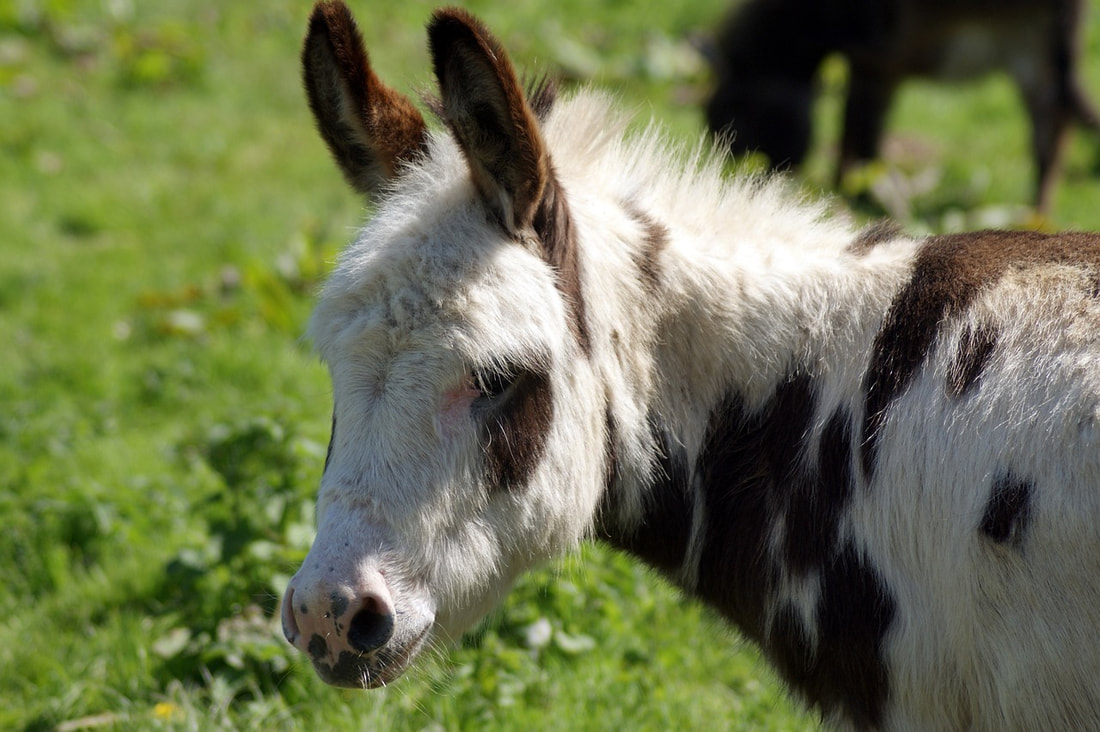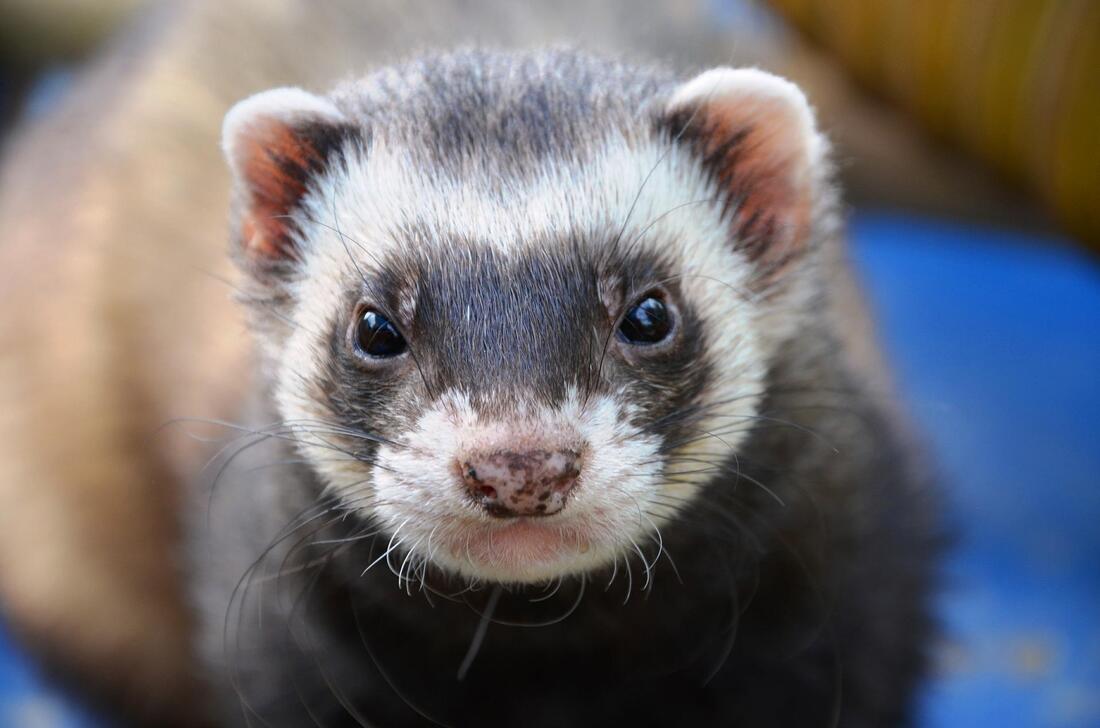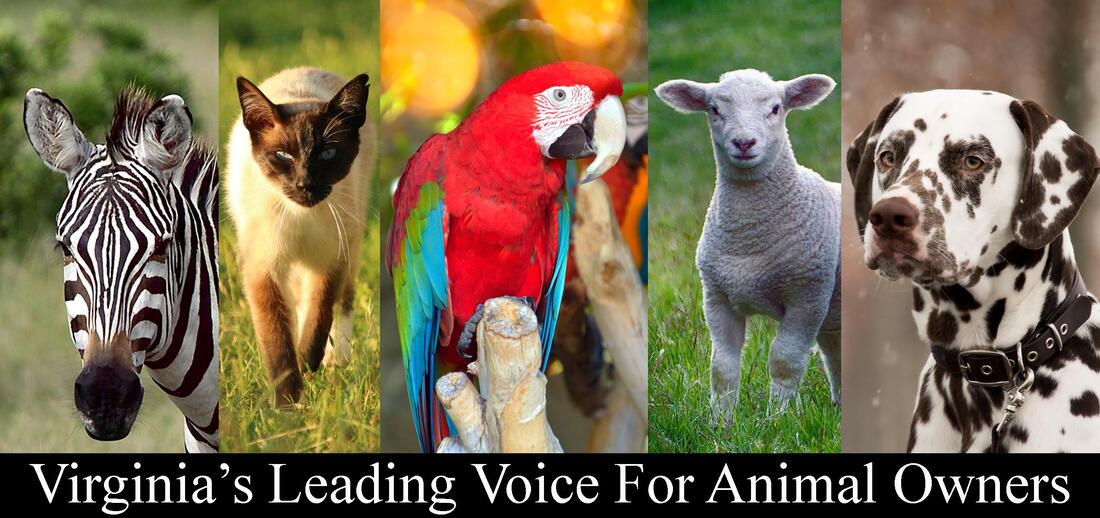WHAT HAPpened to Due Process?
Virginia animal owners currently have no due process under the law. Animals can be seized because the laws in relation to animal cruelty "are about to be" violated. The VAOA wants due process added to sections 3.2-6568 and 3.2-6569. We believe that when humane investigators receive a complaint, they should
be required to learn the facts about an animal first. How can an investigator decide if the
animal has "a direct and immediate threat to its life, safety or health" if they don't know its age or history?
be required to learn the facts about an animal first. How can an investigator decide if the
animal has "a direct and immediate threat to its life, safety or health" if they don't know its age or history?
we need common sense in virginia!
The Animal Law Unit is using vague terms against owners such as “potable water” being water fit for human consumption—in court—which the statute doesn’t actually state. By this standard, the animal's water can NEVER freeze or get dirt in it. While it sounds nice to have clean water at all times it is impractical and wholly unrealistic to keep water perfect AT ALL TIMES. Animals often slobber in their water, lay in their water, or paw in their water the minute they receive it. Pets are even known to knock their water bowls over at some point throughout the day. OWNERS SHOULD NOT BE CRIMINALIZED FOR COMMON ANIMAL BEHAVIOR. A water bowl should not be used to seize an animal and prosecute its owner when the animal in question is healthy and obviously hydrated.
who cares about the facts?
The Animal Law Unit's handling of large-scale seizures has raised a lot of questions. It does not appear that Virginia law intended to deal with the taking of 50—100 plus animals. Think about it. The taking of these animals is supposed to be based on science. There is no way to prepare for the taking of multiple species in 10 days, because it requires expert testimony, legal team, and the review of thousands of documents by both the legal and expert team. The Animal Law Unit argues that the owner’s experts haven’t examined the animal in-person, but the truth is the government refuses to allow the owner’s expert team to examine the animals. The Animal Law Unit never allows the owner’s vet to examine the animals that are being examined for the State’s vet team on the day of the taking. The unit sends off for lab tests after the taking, but either the lab test doesn’t come back within the 10 day period or if they come back to the DISfavor of the government, then the Animal Law Unit actually hides them or claims the owner has to subpoena out-of-state lab workers to verify the authenticity of the report the government ordered!

WHY IS THERE SELECTIVE ENFORCEMENT?
While the legislators in the General Assembly may not have realized how the law could be used against good citizens, the current code is hurting both people and animals. It is broad, vague, and open to interpretation. The code is also being used selectively against citizens. For example, many dogs are rushed to the vet for medical treatment every day across the Commonwealth. This is a common occurrence. What shocks people is when they are arrested for trying to help their pet! Most citizens remain completely unaware of how they could be charged with a misdemeanor or a felony until it happens to them or someone they know. Who is deciding when to charge someone? Why are certain citizens targeted and not others? Emergency vet care should not be used as a weapon against Virginians. If this pattern continues, it will ultimately have a negative impact on the health of animals in the Commonwealth as owners become fearful to ask for help. It is also important to note that many of the publicized charges involving animal owners often happen in certain counties. The laws are not being enforced equally across the board. We need reform and accountability.
HOW is the legal process flawed?
The statute starts the process in district court, making it impossible to bring Constitutional challenges in that court about unlawful search and seizure and due process claim because the district by law cannot grant injunctions. There is no real right of appeal because you have to pay an expensive care bond; this reality make it crucial that at the district court level the owner has enough time to prepare a defense to the taking of property by the government.
The Animal Law Unit no doubt thinks this is effective, but it is wrong and must be changed.
The Animal Law Unit no doubt thinks this is effective, but it is wrong and must be changed.
